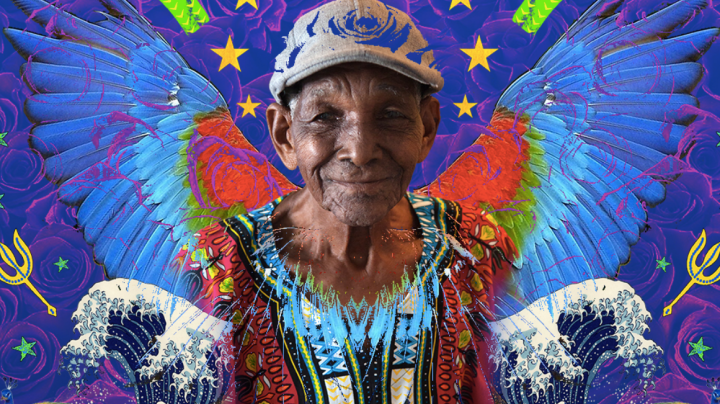The Afro-Colombian Legend Behind Some of Colombia’s Most Iconic Songs is Dead at 95

Magín Díaz. Courtesy of Andres Rodriguez
Sad news: Colombian folk singer Magín Díaz died at the age of 95 on Tuesday in Las Vegas, as reported in a press release shared by his family and management. El Orisha de la Rosa was hospitalized for an arrhythmia in Vegas before attending the recent Latin Grammys ceremony, and died due to respiratory complications.
“Unfortunately the evil spirit does not recognize borders and Magín released his last breath at 9:24 p.m. (Las Vegas time) on November 28, 2017 in complete peace, one hand held by his son Domingo, the other by Daniel [Bustos, his producer], with his feet held by Sebastian [Monroy, his manager],” reads the press release.
The Los Soneros de Gamero leader spent the past 80 years writing and performing traditional Afro-Colombian music, including bullerengue, fandango, cumbia, and chalupa, some of which went on to become known internationally, like “Espíritu Maligno,” Me Amarás,” and “Por El Norte Por El Sur,” thanks to renditions by many popular Colombian artists like Joe Arroyo and Totó la Momposina. Still, until recent years, his contributions had been uncredited, due to his illiteracy and a music industry suffering from institutionalized racism against black artists from the Colombian coast.
Still, in his 90s, the recipient of the Colombian Ministry of Culture’s 2017 Vida y Obra Award was finally able to record his debut album El Orisha de la Rosa, following a successful crowdfunding campaign. Released earlier this year, it features collaborations with the likes of Carlos Vives and Celso Piña, just two of the many Latin American artists he has influenced with his lifelong career. The album earned nominations for Best Folk Album and Best Recording Package at this year’s Latin Grammys and won the latter award. On the morning he died, he received a nomination in the same category for the original Grammys.
Díaz’s remains will be flown to his town of Gamero, Bolivar, for a nine-day open vigil. “His dream was to become a legend and for his music to be heard around the world,” reads the press release. After a life spent in obscurity, Díaz’s recognition in his final years marks a rare moment of justice. He will continue to touch generations of artists through his unforgettable music.
Read more about Magín Díaz’s accomplishments here.